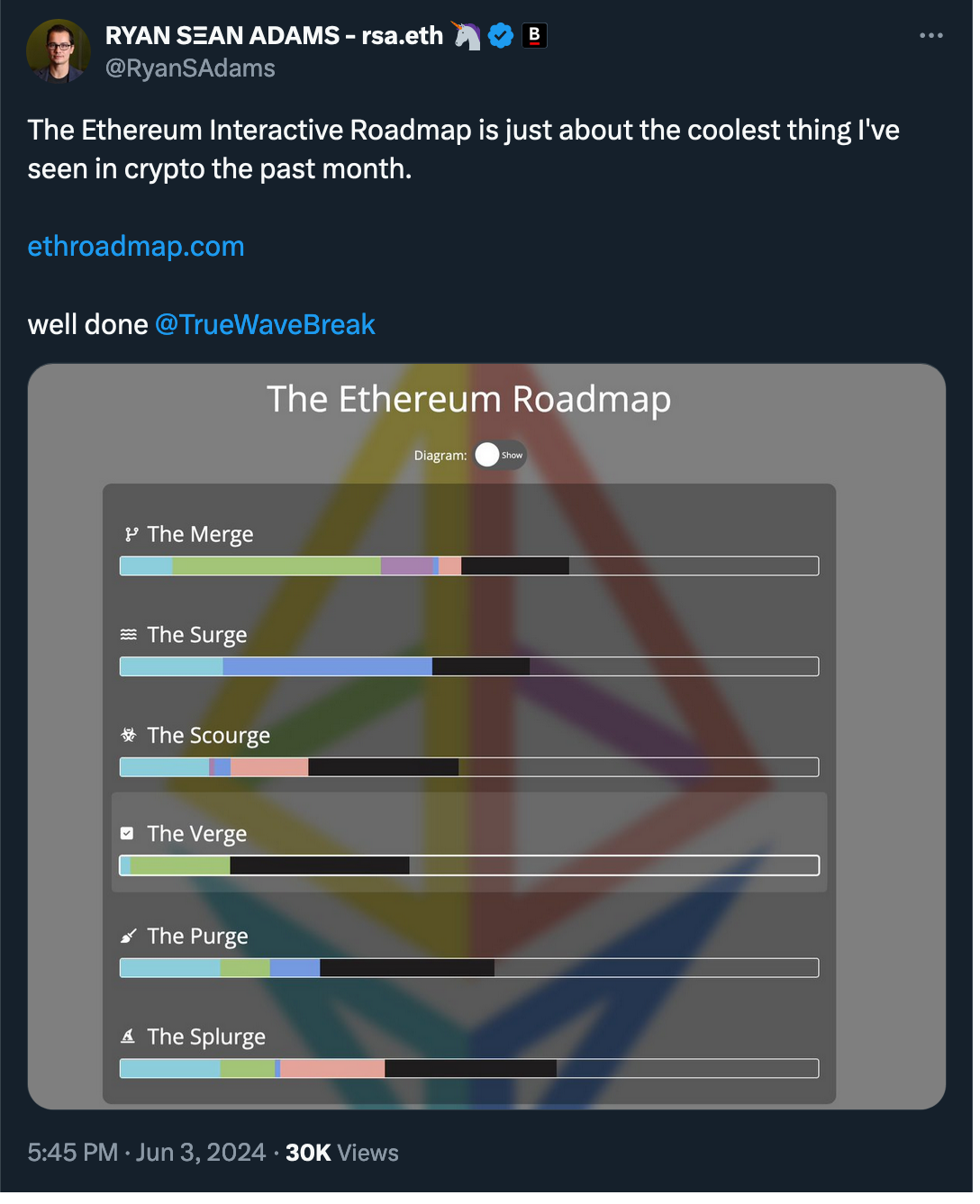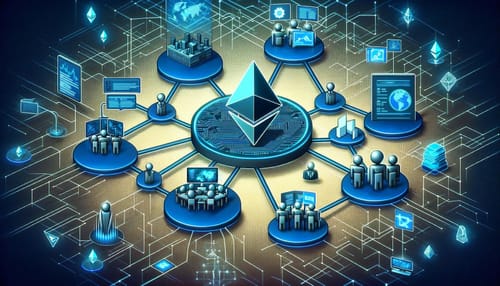Who governs Ethereum? Who decides what to change in the Ethereum protocol and when? What level of influence do end-users have over the Ethereum protocol? Galaxy Digital issued the report , which sheds light on Ethereum governance by providing a comprehensive overview of the processes and institutions involved in decision-making.
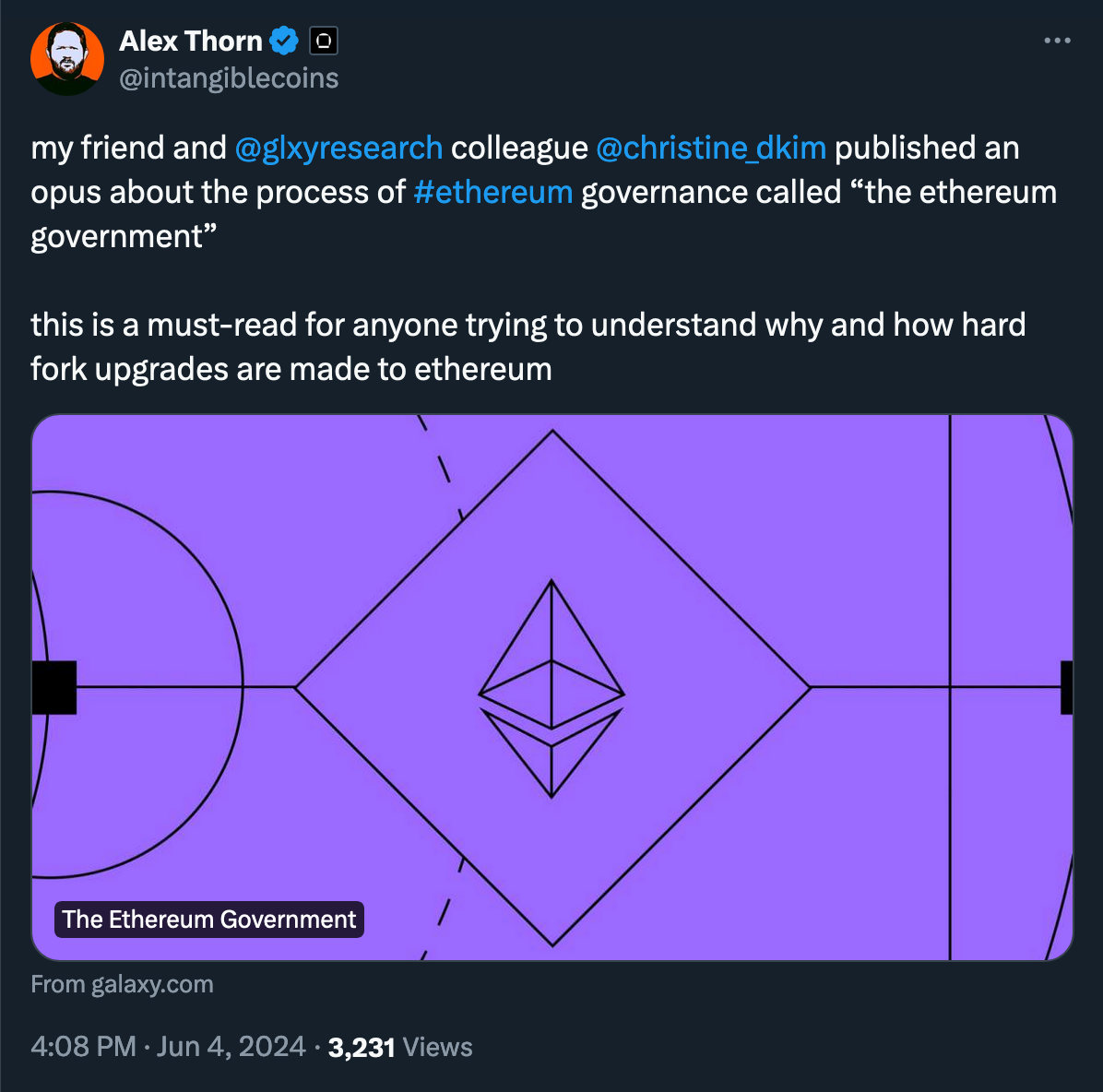
Galaxy Digital's Ethereum Government report reveals that Ethereum’s decentralized governance is primarily guided by off-chain voting rather than on-chain voting by $ETH holders, detailing key stakeholder roles and transparency challenges.
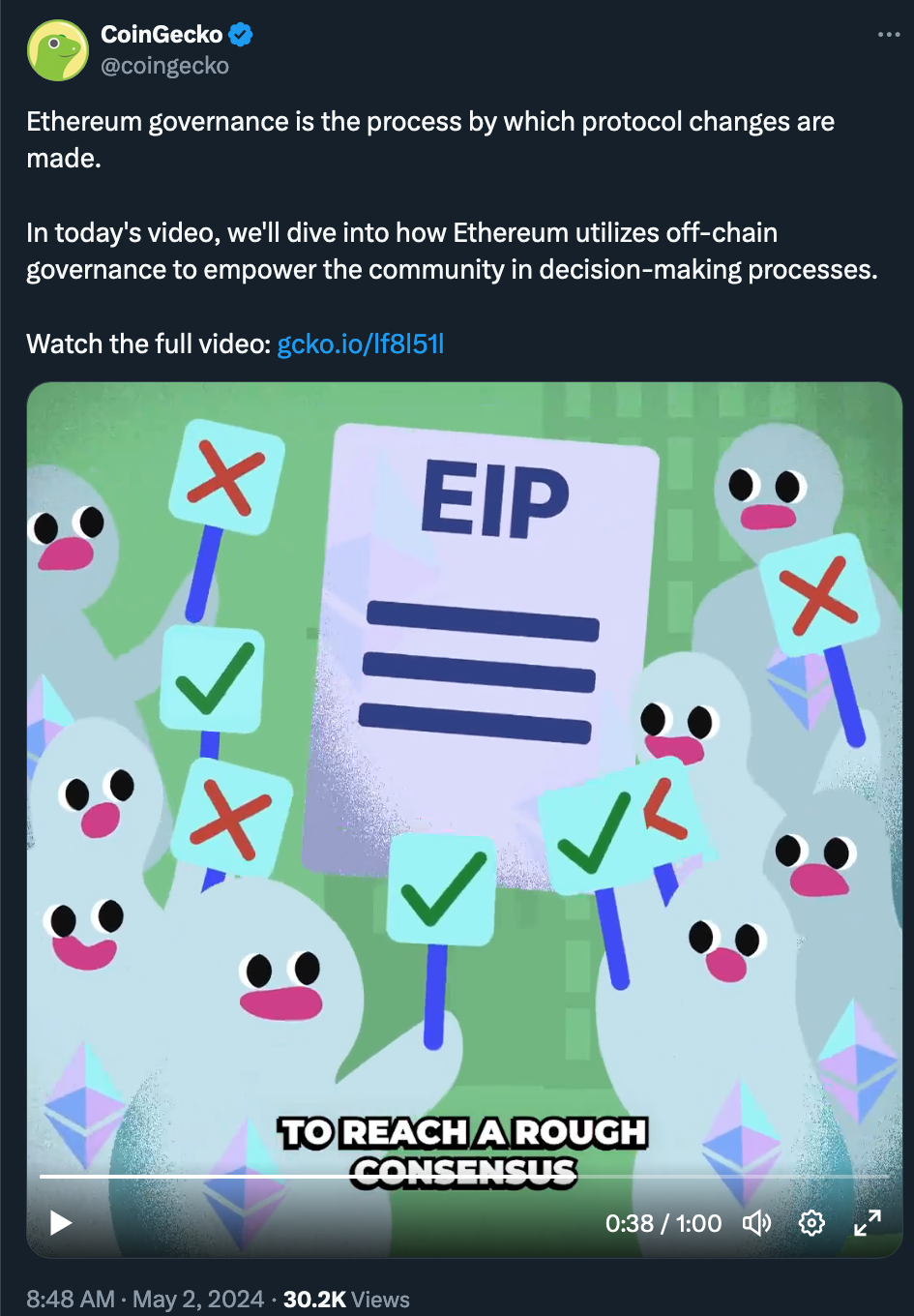
"The more Ethereum can ossify parts of its codebase, the less the network will be at risk of regulatory capture and centralization. The risks of Ethereum being governed by off-chain forums and processes are not unlike the risks that exist even with on-chain forms of governance." (Christine Kim, vice president of Galaxy Digital’s research team, for Cointelegraph)
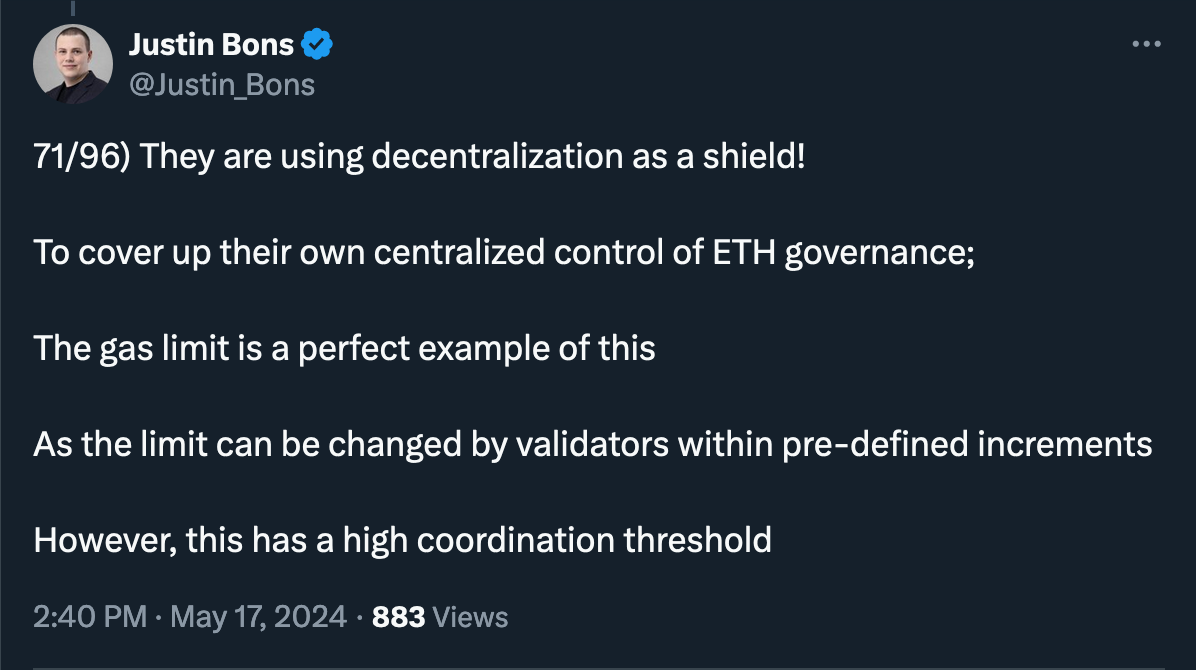
(Thread)
The groups involved in the off-chain processes are client teams, validator node operators, the Ethereum Foundation, and DApp developers.
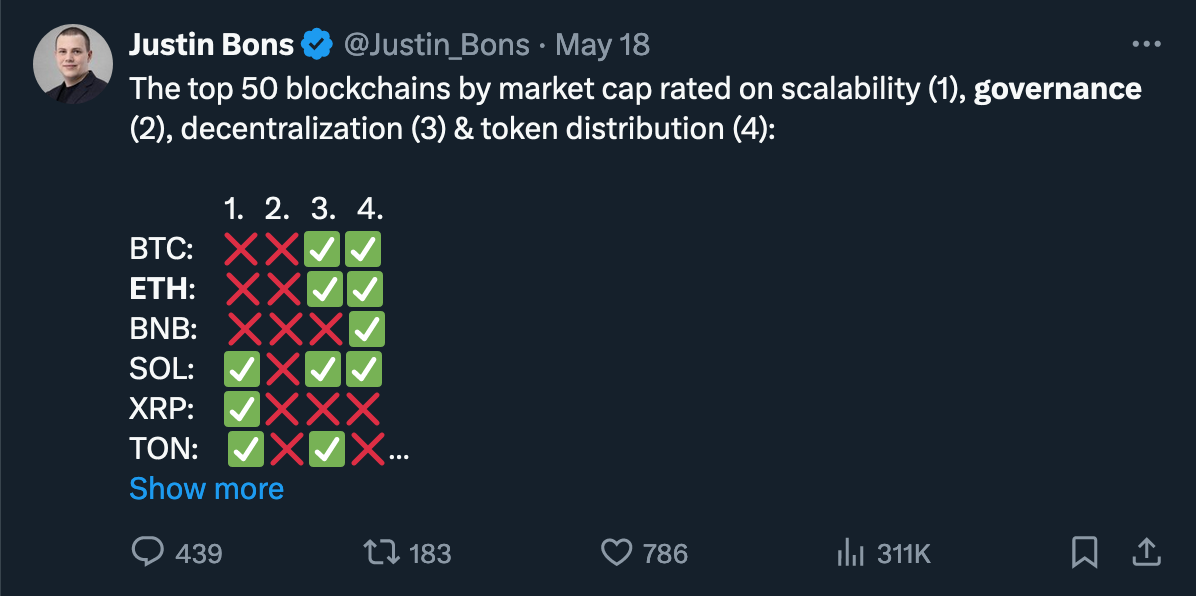
According to the report, client teams that build and maintain the software required to run and connect to the Ethereum network play a crucial role in decision-making, proposal development, discussions, and implementing changes through Ethereum Improvement Proposals (EIP). There are nine major Ethereum client teams, with only one directly supported by the Ethereum Foundation.
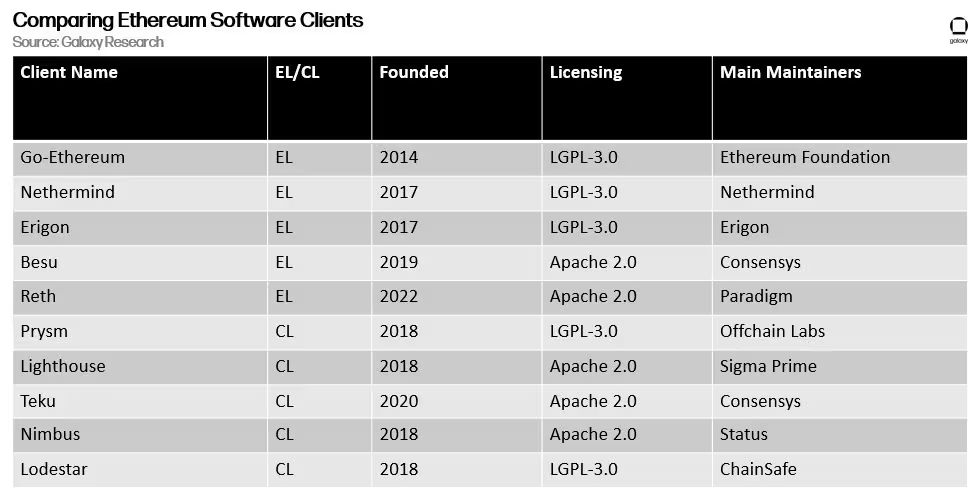
Source: Galaxy Research
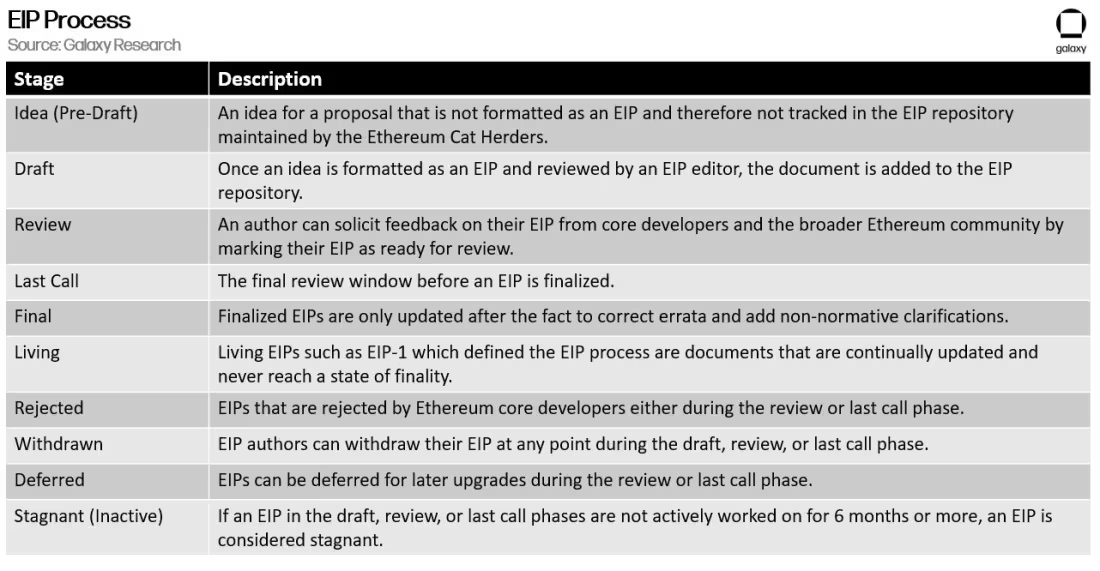
Source: Galaxy Research
Validator node operators have "the agency to implement or reject code changes made to the Ethereum network" by choosing which software version to run.
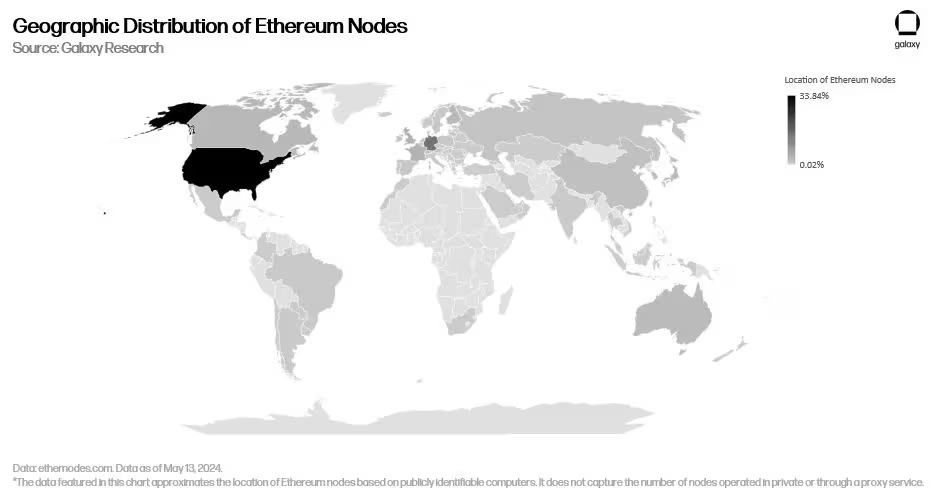
While the Ethereum Foundation’s direct influence has diminished over time, it continues to support development efforts on Ethereum as its earliest and most prominent nonprofit organization.
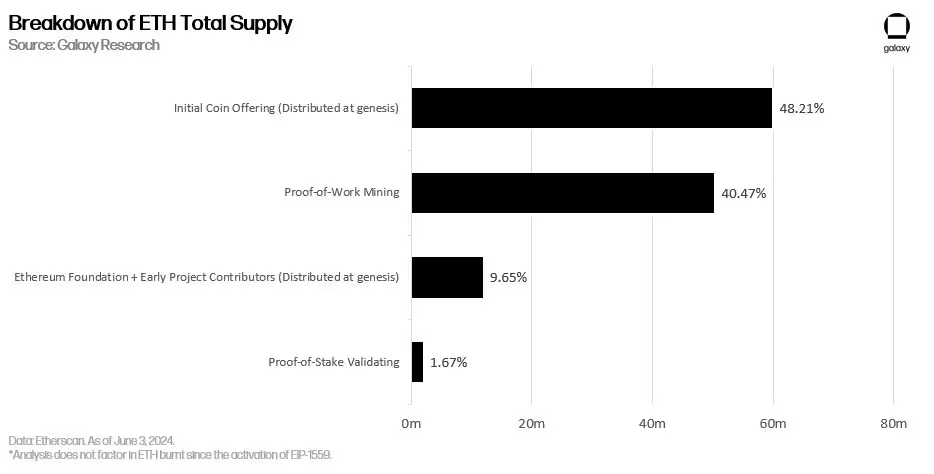
Source: Galaxy Research
DApp developers, essentially the primary users of Ethereum, interact with the codebase to deploy smart contracts and influence certain features and upgrades based on user needs.

According to the report, off-chain governance discussions also occur in forums facilitating stakeholder consensus-building: Ethereum All Core Developers (ACD) calls, ETHMagicians, Ethresear.ch, Discord, and GitHub.
"Like Bitcoin, the governance process for Ethereum is based off-chain, spearheaded by the Ethereum Foundation, and conducted through online forums... No decisions are voted on by ETH holders through on-chain proposals or decentralized autonomous organizations (DAOs). (The Ethereum Government report)
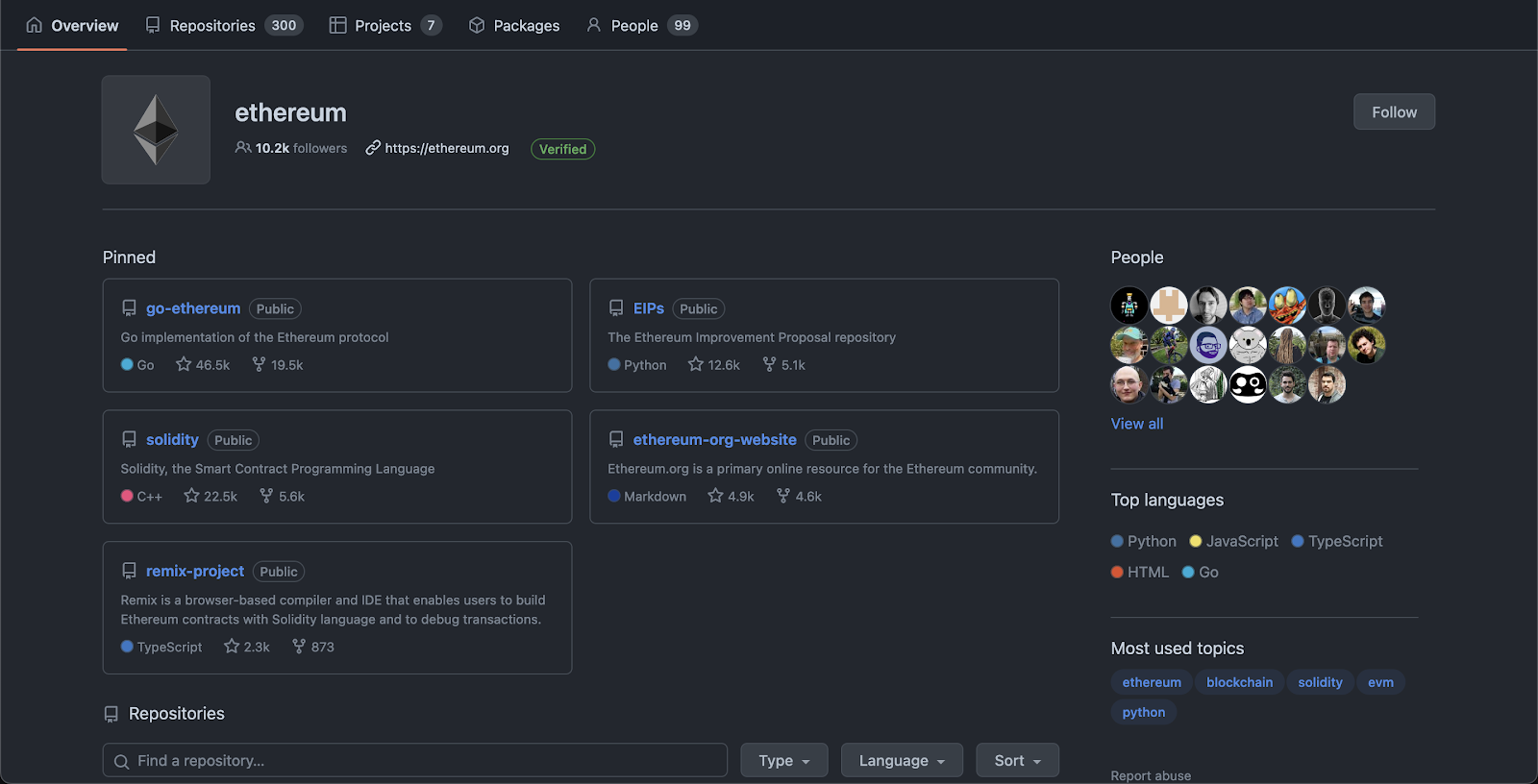
The front page of the official Ethereum GitHub repository
On one hand, this ensures that the governance process for pushing code changes to the Ethereum protocol cannot be influenced by large ETH whale holders or exploited by malicious actors finding loopholes in governance-related smart contracts. On the other hand, off-chain forms of governance are difficult to audit and objectively evaluate because processes are intentionally opaque, subjective, and unstructured.." (The Ethereum Government report)
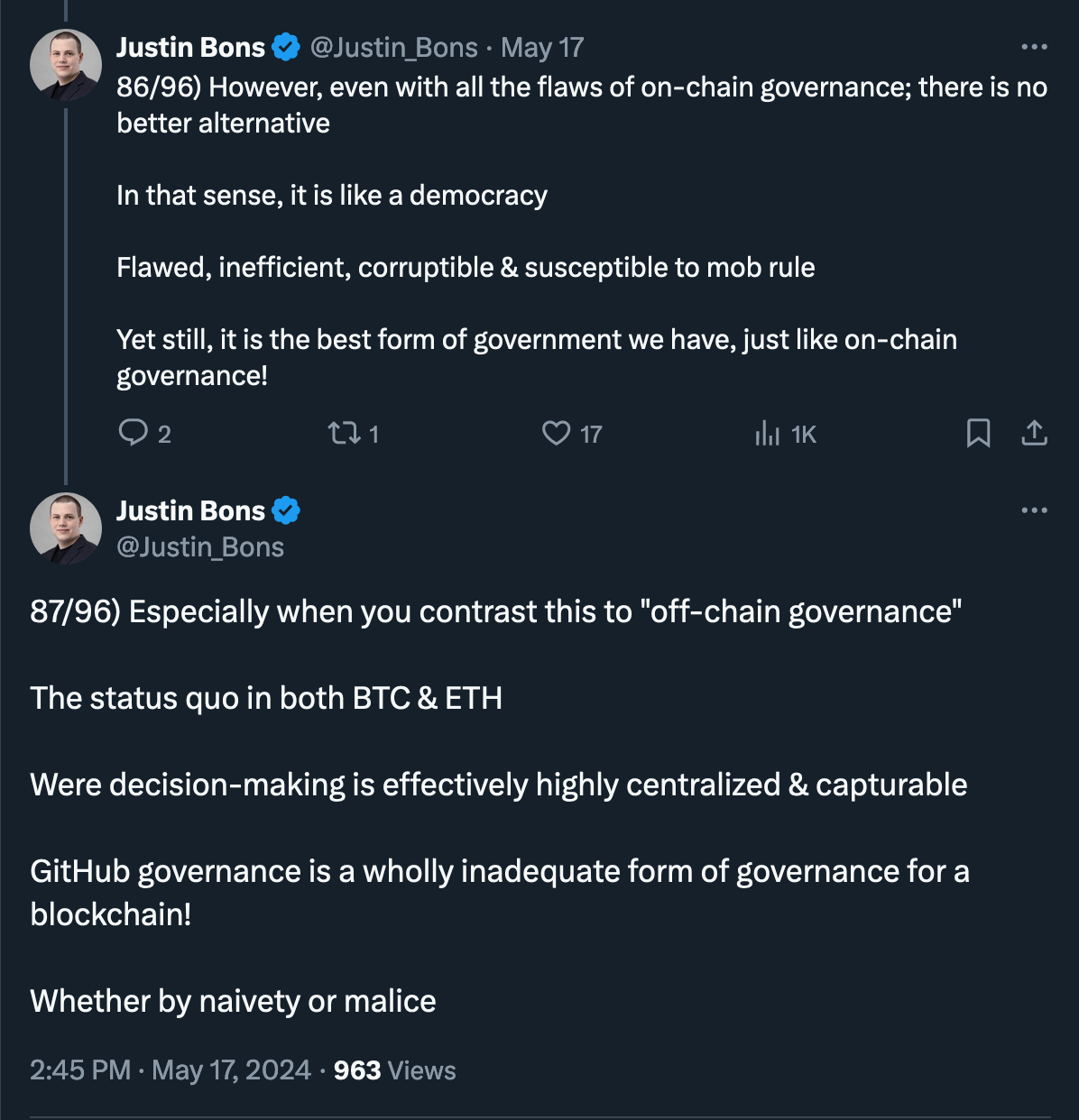
(Thread)
